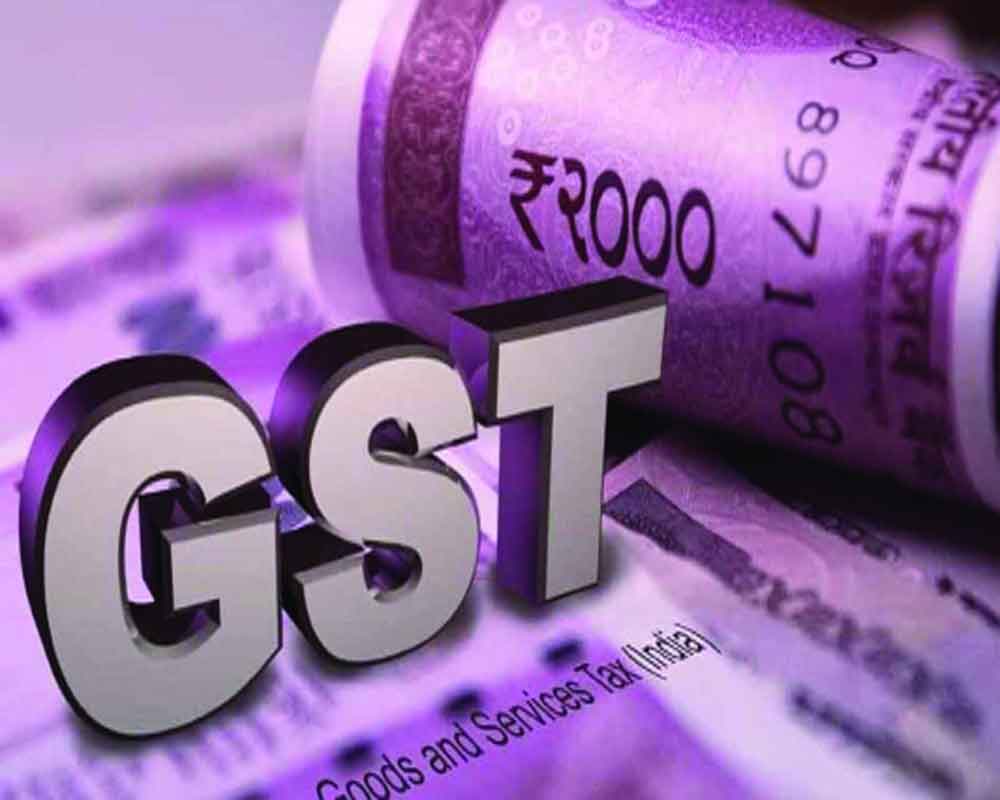The disruption caused by the pandemic is a thing of the past as tax collection rebounded during 2021-22
In its 47th meeting, the GST (Goods and Services Tax) Council held on June 28/29, 2022, at least a dozen finance ministers and other ministers of the states demanded that compensation for losses due to implementation of the GST should be extended.
In the follow up to the unveiling of the GST by the Modi government, ‘The Constitution (One Hundred and First Amendment) Act, 2016’, that introduced the GST from July 1, 2017, the Union government also introduced ‘The GST Compensation Act, 2017’.
It provides for compensation to the States for five years (2017-18 to 2021-22) for the loss of revenue. The Centre also passed an amendment to the GST Compensation Act (2018) to levy a cess on the so-called demerit goods (those which fall in the highest tax slab of 28 percent – other slabs being five percent, 12 percent and 18 percent besides the exempt category) such as automobiles, tobacco, drinks and so on with a proviso to use the proceeds for compensating States.
As laid down in the Act, the compensation ended on June 30, 2022. But the majority of the states want this to be continued arguing (i) the Covid pandemic has severely impacted revenue - their own tax collection, as well as transfer from the Centre, pushing them behind the curve; (ii) they continue to face shortfall in tax revenue. These arguments need close scrutiny.
During the 2020-21, the devastating effect of Covid pandemic on economic activity and resultant dip in tax collection of both the States and the centre resulted in a shortfall in tax revenue of the states of about Rs 300,000 crore. The cess proceeds being only Rs 65,000 crore, this resulted in an unmet deficit of Rs 235,000 crore.
Meanwhile, during 2019-20 also, there was imbalance though not on a scale seen during 2020-21. In that year, the cess proceeds were Rs 95,000 crore against shortfall in tax revenue of Rs 165,000 crore, resulting in unmet deficit of Rs 70,000 crore. After drawing down the surplus from previous two years (2017-18/2018-19) when cess proceeds were higher than the shortfall, the net amount comes to Rs 35,000 crore.
For the two years 2019-20 and 2020-21 put together, the total unmet deficit was Rs 270,000 crore. To make up for this, the Centre, in consultation with the Reserve Bank of India (RBI) set up a special window for borrowings at “low” rate of interest and transferred the funds to states as back-to-back loans. Under this window, Rs 110,000 crore was borrowed during 2020-21 and Rs 160,000 crore during 2021-22.
During FY 2021-22 also, the shortfall in tax revenue of states about Rs 150,000 crore was higher than the cess collection of Rs 100,000 crore, resulting in unmet deficit of Rs 50,000 crore. This plus additional amount needed to accommodate the mismatch during the three month period ending June 30, 2022 will also have to be plugged by borrowings under the ‘special window’.
In view of above, even if there is no extension of the compensation arrangement, the cess on demerit products will have to continue beyond June 30, 2022 if only to service the loan till such time all loan-related liabilities are fully extinguished. The GST Council has already taken a decision in this regard.
In the context of deciding whether the compensation should be continued or otherwise, a niggling question is: why despite waning Covid, and FY 2021-22 posting a sharp rebound in tax collection [gross tax revenue (GTR) of the Centre exceeded the budget estimate (BE) by an unprecedented about Rs 500,000 crore and even the states got more], there was a revenue shortfall. This anomaly may have to do with the formula for determining the shortfall.
Under it, protected revenue (PR) is arrived at by applying annual growth at 14 percent over the 2015-16 level of tax revenue under the erstwhile regime. PR gets unduly inflated due to (a) the base itself being high (that regime was characterized by high tax rate); (b) compounding effect of the percentage growth which is maximum in the fifth year (for instance, @14 percent, Rs 100 will become Rs 193).
The crucial point to note here is: if the erstwhile dispensation were to continue, the states would not have got revenue as extrapolated on the basis of the formula. In fact, during 2021-22, by artificially boosting the PR, the formula has enabled them to garner more than what they deserved.
To conclude, none of the two arguments given by the states in support of continuing the compensation mechanism are tenable. The disruption caused by the pandemic is a thing of the past as tax collection rebounded during 2021-22 and the buoyancy is being maintained during the current FY—as reflected in 35 per cent increase in GST collection during the first quarter.
The claim of ‘continued shortfall in revenue’ too doesn’t cut ice as it is based on comparison of actual revenue with a theoretical figure.
(The author is a policy analyst)


























